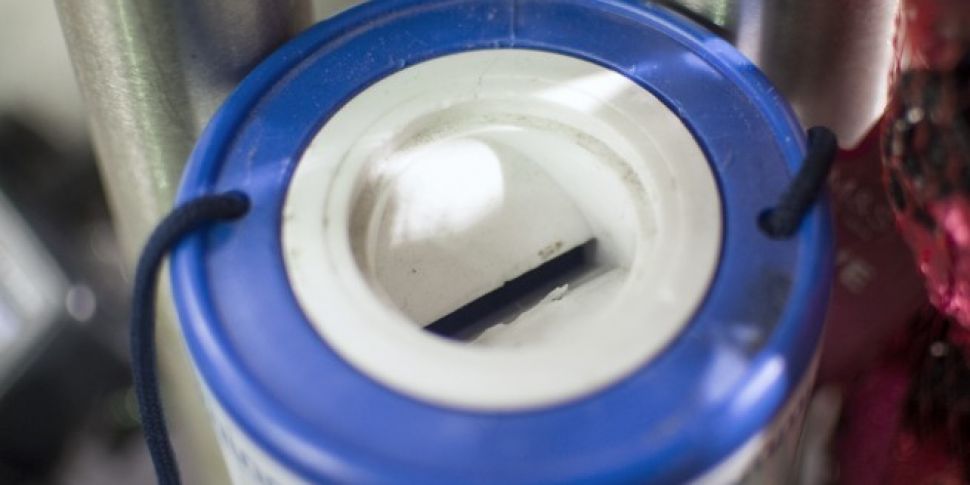Just over 1% of workers in the charity sector are being paid over €70,000, according to a new report from Benefacts.
It means that they are 25 times less likely to receive a salary over this amount than the rest of the working population – 12.8% of the overall workforce earn those amounts.
Two-thirds of these nonprofit workers are also employed by quasi-public bodies where their remuneration is governed by public sector norms.
What Benefacts is calling the most comprehensive analysis of Irish nonprofits ever was launched today by Paschal Donohoe, Minister for Public Expenditure and Reform.
It has identified key sector trends from public data on more than 8,000 nonprofit company reports from 2013, 2014 and 2015.
Benefacts' headline takeaway is that public criticism over supposedly high rates of pay in the area is unduly harsh. Patricia Quinn, managing director at the social enterprise behind the new database of Irish nonprofits, commented:
"How has this sector got a reputation for paying people so much?
"Well maybe people are looking at the very, very small number of household names and they're saying if it's true of them it must be true of everybody. And so Benefacts' big, big idea is to say 'let's hear more about everybody, let's give people information about the entire sector.'"
The sector turns over nearly €11bn annually and accounts for 8% of all current Exchequer expenditure.

Other findings from the report include:
-
Some 310 charities and other nonprofits delivering public services as quasi-public bodies receive more than 70% of the €5.3bn which the Government commits in funding annually to the sector (higher education bodies, voluntary hospitals and local service providers listed here).
-
Disclosure standards in 2015 have fallen, with 23% of all charities opting to file abridged financial statements, which provide no information about the sources of their income
-
More and more of this public funding is by way of service contracts rather than grants, and a sizeable proportion of it is paid to a few hundred organisations whose employees are remunerated as though they were public servants, even though they are employed by independently-governed voluntary organisations.
-
Reported income from fundraising and donations increased on average year-on-year by 15% between 2013 and 2015, although the picture varies dramatically by subsector. Philanthropies contribute at least €83m in donations to the sector annually.
-
Notwithstanding the public demand for transparency, more than a quarter of the nonprofits chose in 2015 to publish abridged financial statements. This is a disclosure standard that provides no information about their current income and expenditure.

Minister Donohoe (pictured) said:
“The work undertaken by Benefacts significantly enhances the effectiveness of Government’s – and wider society’s – interaction with the nonprofit sector. This delivers major benefits to us all in terms of transparency, governance, regulation and, importantly, policy making.”
Ms Quinn added:
“When you consider that nonprofits constitute at least 10% of all of the organisations in Ireland, it’s remarkable that it has taken so long to give them the recognition they deserve.
"Thanks to new charity regulation, new company reporting standards and consistent government commitment to Open Data principles, we are now able to bring some transparency to a sector that has languished in the shade for too long.
"We have committed to making this an annual report, disclosing key trends and helping to restore trust in Ireland’s civil society organisations.”
'Valuable and vital role'
In February, the CEO of Charities Institute Ireland strongly defended high earners in the sector, claling for an end to their demonisation on Newstalk Breakfast.
Lucy Masterson argued that CEOs were "trained, skilled professionals" who are completely committed to their cause, but "still have mortgages and grocery bills to pay like the rest of us".
Initially saying that she "couldn't understand" the public outrage surrounding some inflated charity pay packets, Masterson went on to venture that it comes from how "traditionally the history of giving and the history of charity in Ireland is so strong and so rich".
Whereas once services were provided unpaid – "largely by religious orders and people who were able to volunteer" – Masterson said that "we're living in a new reality now".
"The charity sector in Ireland [fills] a huge gap in society and it's often not spoken about," she argued.
"And that's fine, because we don't want to be celebrated as 'look at us, aren't we fantastic?' But actually, when we look at the gap that the Irish charities fill...
"There's over 132,000 people directly employed in this sector and that is not to mention those working indirectly. There is over half a million people who turn up in an unpaid capacity every week."
Masterson pointed out how, "far from being a taker", the sector contributes €5.5bn per annum to Ireland's GDP.
"But apart from that... there is a valuable and vital role that Irish charities play right across towns and counties across our country. Without these people turning up to work every single day to provide these essential services, these services simply wouldn't be provided."









